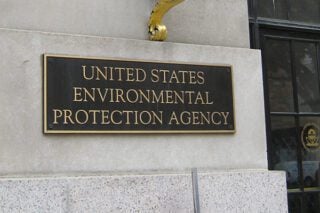A Missouri state jury awarded the family of an ovarian-cancer victim $72 million to be paid by Johnson & Johnson (J&J) due to their talcum powder. In October, 62-year-old Jacqueline Fox passed away after using J&J’s talcum powder for over 35 years. The cancer was specifically linked to her use of Johnson’s Baby Powder and Shower to Shine products.
Talcum powder is used for a wide range of purposes, from personal products such as soap and baby powder, to industrial lubricants for precision machinery, ceramics, and electronics.
According to Co-Director of U.S. Right to Know Stacy Malkan, “Many personal care products on store shelves—products we lather in our hair, rub on our skin, and put in our babies’ bathtubs—contain chemicals with known links to health problems, with no warnings at all to consumers.”
According to the case, J&J knew about the cancer link, yet failed to warn consumers. There are 1,200 similar cases pending in Missouri and New Jersey all around the claim that talcum powder manufacturers neglected to let consumers know about the risk of asbestos exposure and ovarian cancer.
The U.S. Food and Drug Administration (FDA) classified talc as “Generally Recognized as Safe” (GRAS), but some brands use talc that contains a form of amphibole asbestos known as tremolite. In fact, studies have analyzed fibers in talc and found they did indeed contain asbestos.
The Campaign for Safe Cosmetics is a coalition of health and environmental groups researching the ingredients used in personal care products. The group discovered formaldehyde and 1,4 dioxane are linked to cancer, yet are in dozens of baby shampoos and baby bath products.
In comparison, Europe does not use talc in any baby powders, hydroquinone in skin creams, lead acetate in hair dye, or any other dangerous chemicals.
A non-governmental group reviews cosmetics in the U.S., called the Cosmetics Ingredient Review Panel, but it coincidentally shares offices with the cosmetics industry trade association. The panel’s recommendations are just that—recommendations—and do not need to be followed.
Senators Diane Feinstein, D-Calif., and Susan Collins, R-Maine, introduced the Personal Care Products Safety Act of 2015 in April, which would allow the FDA to have more control over the cosmetics industry. It calls for stricter safety standards and improved disclosure provisions so companies can’t hide the use of toxic substances in their products.
“We sympathize with the plaintiff’s family, but firmly believe the safety of cosmetic talc is supported by decades of scientific evidence,” said a spokesperson for J&J.





